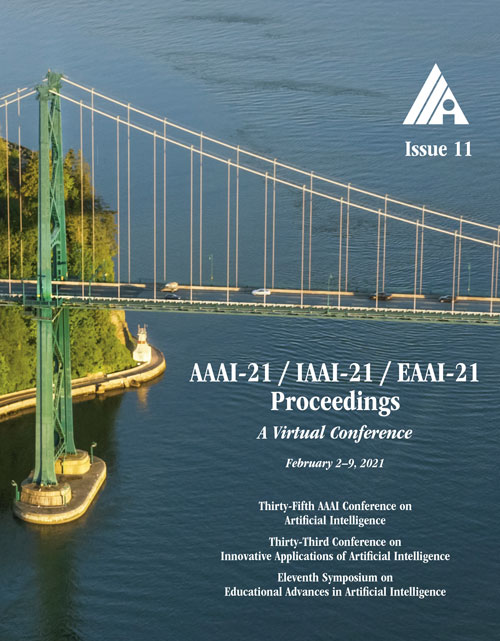Unified Tensor Framework for Incomplete Multi-view Clustering and Missing-view Inferring
DOI:
https://doi.org/10.1609/aaai.v35i11.17231Keywords:
Multi-instance/Multi-view Learning, Clustering, Unsupervised & Self-Supervised Learning, Representation LearningAbstract
In this paper, we propose a novel method, referred to as incomplete multi-view tensor spectral clustering with missing-view inferring (IMVTSC-MVI) to address the challenging multi-view clustering problem with missing views. Different from the existing methods which commonly focus on exploring the certain information of the available views while ignoring both of the hidden information of the missing views and the intra-view information of data, IMVTSC-MVI seeks to recover the missing views and explore the full information of such recovered views and available views for data clustering. In particular, IMVTSC-MVI incorporates the feature space based missing-view inferring and manifold space based similarity graph learning into a unified framework. In such a way, IMVTSC-MVI allows these two learning tasks to facilitate each other and can well explore the hidden information of the missing views. Moreover, IMVTSC-MVI introduces the low-rank tensor constraint to capture the high-order correlations of multiple views. Experimental results on several datasets demonstrate the effectiveness of IMVTSC-MVI for incomplete multi-view clustering.Downloads
Published
2021-05-18
How to Cite
Wen, J., Zhang, Z., Zhang, Z., Zhu, L., Fei, L., Zhang, B., & Xu, Y. (2021). Unified Tensor Framework for Incomplete Multi-view Clustering and Missing-view Inferring. Proceedings of the AAAI Conference on Artificial Intelligence, 35(11), 10273-10281. https://doi.org/10.1609/aaai.v35i11.17231
Issue
Section
AAAI Technical Track on Machine Learning IV

